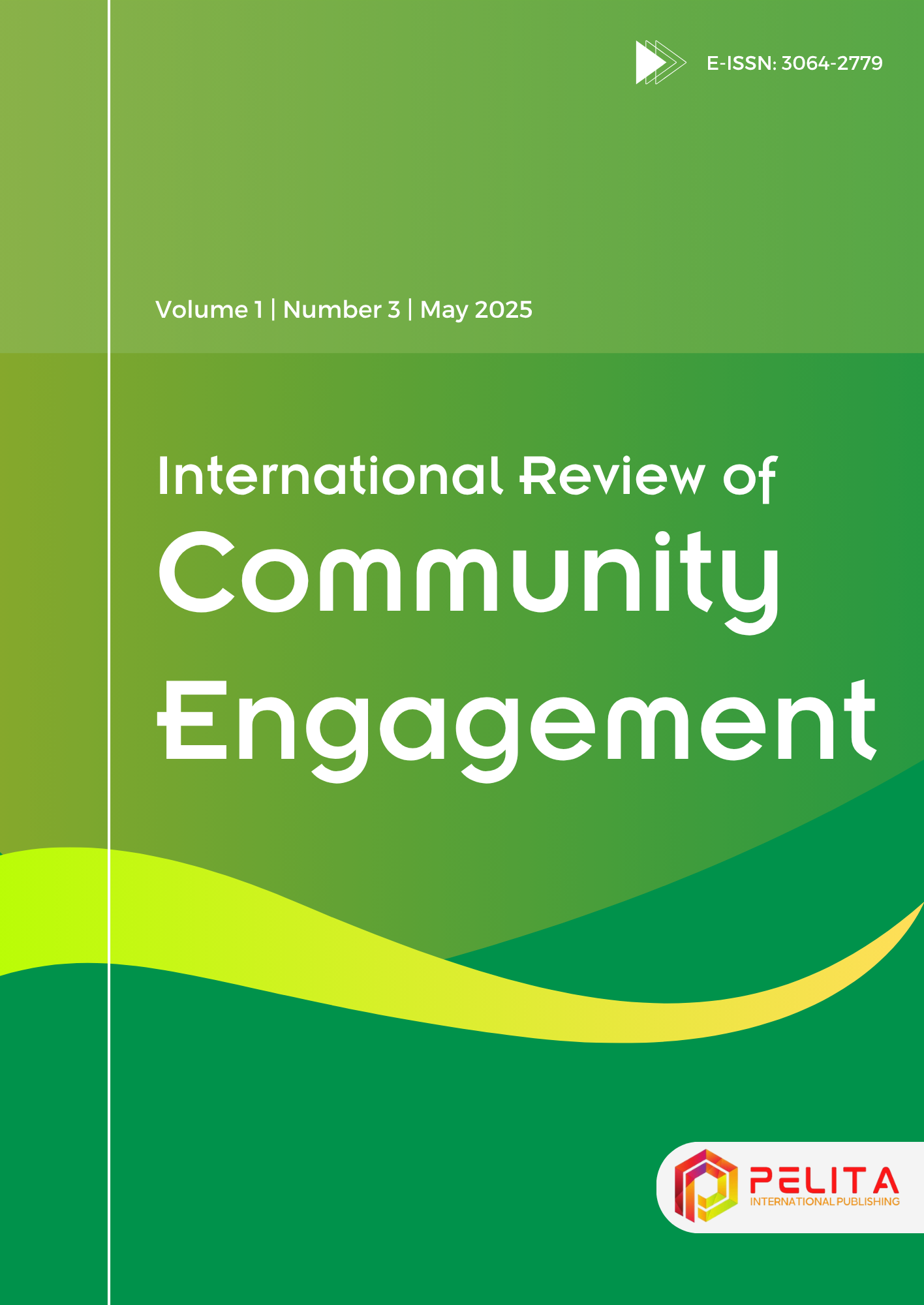
A Public policy in Islamic education: A systematic review and bibliometric analysis
DOI:
10.62941/irce.v1i3.138Downloads
Abstract
Issues related to public policy in Islamic education have become a topic that has been widely discussed by scholars to date. Public policy is the core driving force of the development of Islamic educational institutions in general. This study aims to discuss various literature and map the trend of article themes related to public policy in Islamic education using bibliometric analysis. This research is based on 189 Scopus indexed article documents from 2014 to 2023. Bibliometric analysis is used in this study to describe several trends related to public policy in Islamic education, including; the number of documents per year, the most popular author, the author's country of origin, and the themes discussed related to public policy in Islamic education. In addition, this study presents visualizations related to potential research areas as well as information about several public policy concepts in Islamic education. The United States has the most writers as many as 34 people. The most popular subject areas; Social Sciences, Art and Humanities dan Medicine. Meanwhile, the dominant theme is the implementation of public policy in Islamic education, Islamic higher education policy and the relationship between education policy and Islamic society.
References
Adelman, H. S., & Taylor, L. (2011). Expanding School Improvement Policy to Better Address Barriers to Learning. Policy Futures in Education, 9, 431–436. http://smhp.psych.ucla.edu/pdfdocs/expandingsip.pdf
Andriansyah, A., Taufiqurokhman, T., & Wekke, I. S. (2019). Responsiveness of public policy and its impact on education management: An empirical assessment from Indonesia. Management Science Letters, 9(3), 413–424. https://doi.org/10.5267/j.msl.2018.12.008
Aydarova, E., & Berliner, D. C. (2018). Navigating the contested terrain of teacher education policy and practice: Introduction to the special issue. Education Policy Analysis Archives, 26, 25. https://doi.org/10.14507/epaa.26.3739
Bales, B. L. (2015). Restructuring Teacher Education in the United States: Finding the Tipping Point. Athens Journal of Education, 2(4), 297–312. https://doi.org/10.30958/aje.2-4-1
Banagozar-Mohammadi, A., Delirrad, M., Alizadeh, A., Majidi, M., & Balali-Mood, M. (2020). Status of clinical toxicology education and ethics in medical care of poisoned patients in the Islamic Republic of Iran and a comparison with other countries. Basic and Clinical Pharmacology and Toxicology, 126(6), 475–483. https://doi.org/10.1111/bcpt.13380
Chiang, T. H., Trezise, D., Wang, Y. Z., & Thurston, A. (2023). Policy reconfiguration as enactment in the strategy of recontextualized neoliberalism: Paradigmatic shift in teacher education policy reform. International Journal of Educational Research, 117, 102098. https://doi.org/10.1016/j.ijer.2022.102098
Cobb, C. D., Donaldson, M. L., & Mayer, A. P. (2013). Creating High Leverage Policies: A New Framework to Support Policy Development. Berkeley Review of Education, 4. https://doi.org/10.5070/b84110010
Doshmangir, L., Bazyar, M., Majdzadeh, R., & Takian, A. (2019). So Near, So Far: Four Decades of Health Policy Reforms in Iran, Achievements and Challenges. Archives of Iranian Medicine, 22(10), 592–605.
Grimm, H. M., & Bock, C. L. (2022). Entrepreneurship in public administration and public policy programs in Germany and the United States. Teaching Public Administration, 40(3), 322–353. https://doi.org/10.1177/01447394211021636
Hazelkorn, E. (2004). Growing Research: Challenges for Latedevelopers and Newcomers. Higher Education Management and Policy, 16(1), 119–140. http://www.oecd.org/dataoecd/22/33/37443688.pdf#page=116
Jones, D. (1998). The challenges and opportunities: An Agenda for Policy Research. By. December.
Khodr, H. (2018). Policies and politics surrounding Islamic studies programs in higher education institutions in the United States: The perfect storm in the war against terrorism, extremism, and islamophobia. Contemporary Arab Affairs, 11(3), 3–24. https://doi.org/10.1525/caa.2018.113001
Lamoureux, S. (2011). Public policy, language practice and language policy beyond compulsory education: Higher education policy and student experience*. OLBI Working Papers, 3, 123–140. https://doi.org/10.18192/olbiwp.v3i0.1098
Limonta, S. V. (2012). Full Time School in Brazil : Policy , Curriculum and Pedagogic Challenges. 108–114.
Muazza, M., Mukminin, A., Habibi, A., Hidayat, M., & Abidin, A. (2018). Education in Indonesian islamic boarding schools: Voices on curriculum and radicalism, teacher, and facilities. Islamic Quarterly, 62(4), 507-536.
Nkuyubwatsi, B. (2016). A Critical Look at Policy Environment for Opening up Public Higher Education in Rwanda. Journal of Learning for Development, 3(2). https://doi.org/10.56059/jl4d.v3i2.141
Richardson, Jr., R. C., Bracco, K. R., Callan, P. M., & Finney, J. E. (1998). Balancing Institutional and Market Influences. Higher Education Governance, November, 27.
Samier, E. A. (2020). Towards a Model of Islamic Policy Studies for Higher Education : A Comparison with Anglo-American Policy Studies. Higher Education Governance and Policy, 1(1), 49–62.
Sayed, Y. (2002). Changing forms of teacher education in South Africa: A case study of policy change. International Journal of Educational Development, 22(3–4), 381–395. https://doi.org/10.1016/S0738-0593(01)00062-1
Thachil, T. (2009). Neoliberalism’s two faces in Asia globalization, educational policies, and religious schooling in India, Pakistan, and Malaysia. Comparative Politics, 41(4), 473-494+518. https://doi.org/10.5129/001041509x12911362972593
Weine, S., Brahmbatt, Z., Cardeli, E., & Ellis, H. (2020). Rapid review to inform the rehabilitation and reintegration of child returnees from the islamic state. Annals of Global Health, 86(1), 1–15. https://doi.org/10.5334/AOGH.2835
Winton, S. (2010). Democracy in Education Through Community-Based Policy Dialogues. Canadian Journal of Educational Administration and Policy, 114.
License
Copyright (c) 2025 Rahayu Subakat

This work is licensed under a Creative Commons Attribution-ShareAlike 4.0 International License.









